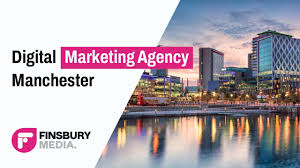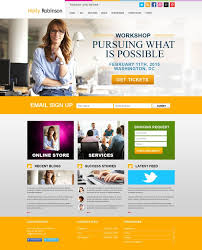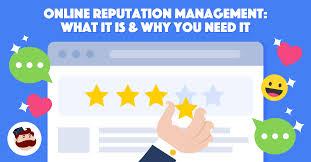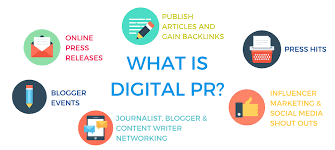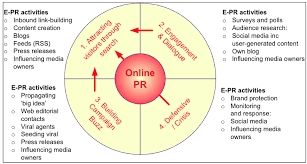Media PR Agency: Unlocking the Power of Effective Communication
In today’s fast-paced and ever-evolving business landscape, effective communication has become more crucial than ever. With the rise of digital media and the constant flow of information, businesses need to navigate through the noise to ensure their message reaches the right audience. This is where a Media PR Agency can make a significant difference.
A Media PR Agency serves as a strategic partner for businesses, helping them craft compelling narratives, build strong brands, and engage with their target audience effectively. These agencies combine their expertise in public relations, media relations, and communications to create impactful campaigns that generate positive exposure and enhance brand reputation.
One of the primary roles of a Media PR Agency is to secure media coverage for their clients. Through cultivating relationships with journalists and media outlets, they can pitch newsworthy stories that capture attention and generate valuable publicity. This coverage can range from traditional print and broadcast media to online publications and influential bloggers.
Beyond securing media coverage, a Media PR Agency also plays a vital role in managing crisis communication. In times of unexpected challenges or negative publicity, these agencies step in to protect their clients’ reputation by providing timely responses, strategic messaging, and proactive damage control. Their experience in handling crises ensures that businesses can navigate difficult situations while minimizing potential harm.
Furthermore, a Media PR Agency helps businesses establish themselves as thought leaders within their industry. By leveraging various platforms such as speaking engagements, guest articles, or expert commentary in the media, these agencies position their clients as trusted authorities in their respective fields. This not only enhances brand credibility but also opens doors for new opportunities and partnerships.
The benefits of partnering with a Media PR Agency extend beyond just generating positive exposure. These agencies have an in-depth understanding of different industries and target audiences. They conduct thorough research to identify key trends and insights that inform communication strategies tailored specifically to each client’s unique needs.
Moreover, working with a Media PR Agency allows businesses to focus on their core competencies while leaving the communication aspect in the hands of experts. With their extensive networks and knowledge of the media landscape, these agencies can navigate through the complexities of the industry, saving businesses valuable time and resources.
When choosing a Media PR Agency, it is essential to find a partner that aligns with your brand values and understands your business objectives. Look for agencies with a proven track record, diverse expertise, and a strong network of media contacts. A collaborative approach is key, as effective communication requires close collaboration between the agency and the client.
In conclusion, a Media PR Agency can be a game-changer for businesses looking to enhance their communication efforts. From securing media coverage to managing crises and establishing thought leadership, these agencies unlock the power of effective communication. By partnering with a Media PR Agency, businesses can navigate through the dynamic media landscape with confidence, ensuring their message reaches the right audience and driving success in today’s competitive business world.
Common Inquiries about Media PR Agencies in the UK
- What services do media PR agencies offer?
- How much does a media PR agency cost?
- How can a media PR agency help my business?
- What is the best way to contact a media PR agency?
- How long does it take for a media PR agency to get results?
- What are the benefits of working with a media PR agency?
- What types of clients do media PR agencies typically work with?
Media PR agencies offer a wide range of services to help businesses effectively communicate their message and enhance their brand reputation. Some common services offered by media PR agencies include:
- Media Relations: Media PR agencies excel in building relationships with journalists and media outlets. They pitch newsworthy stories, press releases, and expert commentary to secure media coverage for their clients. This includes traditional print and broadcast media as well as online publications, blogs, podcasts, and social media influencers.
- Crisis Communication: Media PR agencies are equipped to handle unexpected crises or negative publicity situations. They develop crisis communication strategies, provide timely responses, manage media inquiries, and mitigate potential damage to the client’s reputation.
- Strategic Communication Planning: Media PR agencies work closely with clients to develop comprehensive communication plans aligned with their business objectives. This includes identifying target audiences, crafting key messages, and determining the most effective channels for communication.
- Thought Leadership Development: Media PR agencies help position clients as industry thought leaders by securing speaking engagements at conferences, arranging interviews with relevant media outlets, ghostwriting articles or blog posts on behalf of clients, and facilitating participation in industry panels or forums.
- Content Creation: Media PR agencies assist in creating compelling content that resonates with the target audience. This can include writing press releases, articles, blog posts, social media content, case studies, whitepapers, and more.
- Reputation Management: Media PR agencies monitor online conversations about their clients’ brands and proactively manage their online reputation through strategic messaging and engagement with stakeholders on social media platforms or review websites.
- Event Management: Some media PR agencies offer event management services to support product launches or corporate events by handling media invitations and coordination, ensuring positive coverage before, during, and after the event.
- Influencer Engagement: With the rise of influencer marketing, media PR agencies can identify relevant influencers within specific industries or niches to collaborate with for brand endorsements, product reviews, or sponsored content.
- Media Training: Media PR agencies provide media training to prepare clients for interviews or public appearances. This includes coaching on effective messaging, body language, and handling difficult questions.
- Measurement and Analytics: Media PR agencies track and analyze the results of their communication efforts to measure the impact and effectiveness of campaigns. This data helps inform future strategies and optimize communication tactics.
It’s important to note that the specific services offered by media PR agencies may vary based on their expertise, industry focus, and client requirements. Businesses can work closely with these agencies to tailor a service package that meets their unique communication goals.
The cost of hiring a media PR agency can vary depending on several factors, including the agency’s reputation, experience, location, scope of services, and the specific needs of your business. It’s important to note that media PR agencies typically offer customized solutions tailored to each client’s requirements, so pricing structures can differ.
Some media PR agencies may charge a monthly retainer fee based on the level of service and the anticipated amount of work required. Retainer fees can range from a few thousand pounds to tens of thousands of pounds per month, depending on the agency’s expertise and the scale of your project or campaign.
Other agencies may charge on a project basis. This means that you will receive a quote for specific deliverables or services required for a particular project or campaign. The cost will depend on factors such as the complexity and duration of the project, the number of media outlets targeted, and additional services such as content creation or event management.
It’s important to have open and transparent discussions with potential media PR agencies about your budget and expectations from the outset. This will help them provide you with a realistic estimate and ensure that their services align with your financial capabilities.
Keep in mind that while cost is an important consideration, it should not be the sole determining factor when choosing a media PR agency. It’s crucial to assess their track record, expertise in your industry, understanding of your target audience, and their ability to deliver results. Ultimately, investing in a reputable media PR agency can yield significant returns by enhancing your brand reputation, generating positive exposure, and driving business growth.
A media PR agency can provide numerous benefits and help your business in several ways:
- Enhancing brand visibility: A media PR agency has the expertise to secure media coverage for your business. By leveraging their relationships with journalists and media outlets, they can pitch compelling stories that generate positive exposure. This increased visibility helps raise brand awareness and reach a wider audience.
- Building brand reputation: A media PR agency can help shape and manage your brand’s reputation. They develop strategic messaging, handle crisis communication, and proactively address any negative publicity. By effectively managing your brand’s image, they ensure that your business maintains a positive reputation in the eyes of the public.
- Establishing thought leadership: A media PR agency can position you as an industry expert or thought leader. Through strategic placement of guest articles, speaking engagements, or expert commentary in the media, they help you build credibility and establish your business as a trusted authority in your field. This enhances your reputation and opens doors to new opportunities.
- Generating positive publicity: Media PR agencies excel at identifying newsworthy angles within your business that can attract media attention. They craft compelling press releases, organize press events, and pitch stories to journalists to generate positive publicity for your products, services, or achievements. This exposure helps drive customer interest and boosts sales.
- Managing crises effectively: In times of unexpected challenges or negative publicity, a media PR agency plays a crucial role in managing crises promptly and effectively. They provide timely responses, develop crisis communication strategies, and guide you through difficult situations while protecting your brand’s reputation.
- Maximizing digital presence: With their knowledge of digital platforms and trends, a media PR agency can help optimize your online presence. They create engaging content for social media platforms, manage online reputation management, and implement effective SEO strategies to ensure that your business stands out in the digital realm.
- Saving time and resources: Partnering with a media PR agency allows you to focus on your core business activities while leaving the communication aspect in the hands of experts. They handle media relations, research, content creation, and other communication tasks, saving you valuable time and resources.
- Leveraging industry expertise: Media PR agencies have a deep understanding of different industries and target audiences. They conduct thorough research, analyze market trends, and identify key insights that inform their communication strategies. This specialized knowledge helps tailor their approach to your specific business needs.
Overall, a media PR agency can help your business by enhancing brand visibility, building reputation, establishing thought leadership, generating positive publicity, managing crises effectively, maximizing digital presence, saving time and resources, and leveraging industry expertise. Their strategic approach to communication can drive growth and success for your business in today’s competitive landscape.
When reaching out to a media PR agency, it’s important to choose a contact method that is convenient and aligns with their preferred communication channels. Here are some common ways to contact a media PR agency:
- Email: Sending an email is often the most preferred and efficient method of contacting a media PR agency. Look for the agency’s official email address, which is usually available on their website or in their contact information. Craft a concise and professional email introducing yourself or your company, stating your purpose for reaching out, and expressing your interest in their services. Be sure to include relevant details such as your industry, specific goals, and desired outcomes.
- Phone: If you prefer direct communication or have urgent inquiries, consider calling the media PR agency directly. Look for their phone number on their website or other official sources. Prepare a brief script outlining your key points before making the call to ensure clarity and efficiency during the conversation.
- Contact Form: Many media PR agencies have contact forms on their websites that allow you to submit inquiries or requests for more information. Fill out the form with accurate details about yourself or your company, along with any specific questions or requirements you may have.
- Social Media: Some media PR agencies actively engage with clients and prospects through social media platforms such as LinkedIn, Twitter, or Facebook. Consider sending them a direct message via these platforms if they encourage such communication.
- Networking Events: Attend industry conferences, seminars, or networking events where media PR agencies may be present. Engage in conversations with representatives from these agencies to establish connections and exchange contact information for future correspondence.
Regardless of the method you choose, it’s important to be professional, concise, and clear in your communication. Personalize your message by demonstrating knowledge about the agency’s work and explaining why you believe they would be a good fit for your needs. Providing specific details about your objectives can help them understand how they can assist you effectively.
Remember to be patient and allow some time for the media PR agency to respond. If you don’t receive a reply within a reasonable timeframe, it may be appropriate to follow up with a polite reminder or explore alternative agencies that may better suit your requirements.
The time it takes for a media PR agency to get results can vary depending on several factors, including the specific goals of the campaign, the industry, the target audience, and the overall strategy employed. It is important to understand that public relations efforts are typically focused on building long-term brand reputation and relationships rather than delivering immediate outcomes.
In some cases, a media PR agency may be able to secure media coverage or generate positive exposure relatively quickly. This could be through press releases, media pitches, or other strategies aimed at capturing attention. However, sustained and impactful results often require ongoing efforts and a consistent presence in the media landscape.
Building relationships with journalists and securing consistent media coverage usually takes time. It involves identifying relevant media outlets and journalists who are interested in covering your industry or topic. Developing these connections requires ongoing communication, providing valuable insights or stories that align with their interests.
The timeline for achieving specific goals will also depend on the complexity of the campaign. For example, launching a new product or entering a new market may require more extensive planning and coordination with various stakeholders. In such cases, it is important to allow ample time for strategy development, research, and execution.
It is worth noting that measuring the success of PR efforts can be subjective and difficult to quantify solely based on timeframes. Results can vary depending on factors such as industry competition, market conditions, and external events that may impact media coverage.
Ultimately, it is best to work closely with your chosen media PR agency to set realistic expectations and establish clear objectives from the outset. Regular communication with your agency will help you stay informed about progress and make any necessary adjustments along the way.
Remember that public relations is an ongoing process aimed at building relationships and enhancing brand reputation over time. By investing in a long-term partnership with a reputable media PR agency, you can expect to see gradual improvements in brand visibility, reputation management, and engagement with your target audience.
Working with a media PR agency can bring numerous benefits to businesses. Here are some key advantages:
- Expertise and Industry Knowledge: Media PR agencies have a deep understanding of the media landscape and industry trends. They possess expertise in crafting compelling narratives, identifying newsworthy angles, and developing effective communication strategies. Their knowledge helps businesses navigate through the complexities of media relations and ensures that their message resonates with the target audience.
- Media Exposure: Securing media coverage is one of the primary goals of a media PR agency. By leveraging their extensive network of media contacts, these agencies can pitch stories, press releases, and expert commentary to journalists and publications that align with their clients’ target audience. This exposure helps businesses gain credibility, increase brand visibility, and reach a wider audience.
- Crisis Management: In times of unexpected challenges or negative publicity, a media PR agency plays a crucial role in managing crisis communication. They provide strategic counsel, develop crisis response plans, and handle media inquiries effectively. Their experience in handling crises helps protect businesses’ reputation while minimizing potential damage.
- Thought Leadership: Media PR agencies help position their clients as thought leaders within their industry. By securing speaking engagements, guest articles, or expert interviews in relevant media outlets, they establish their clients as trusted authorities in their field. This enhances brand credibility, builds trust with the target audience, and opens doors for new opportunities.
- Strategic Messaging: Crafting the right message is essential for effective communication. Media PR agencies work closely with businesses to develop key messages that align with their brand values and resonate with their target audience. They ensure consistency across different communication channels and help businesses convey their unique value proposition effectively.
- Time and Resource Savings: Partnering with a media PR agency allows businesses to focus on their core competencies while leaving the communication aspect in the hands of experts. These agencies have the knowledge and resources to navigate through the intricacies of media relations, saving businesses valuable time and effort.
- Objective Perspective: Media PR agencies bring an external perspective to the table. They can provide valuable insights and fresh ideas that may not be apparent from an internal standpoint. Their objective viewpoint helps businesses refine their messaging, identify new opportunities, and stay ahead of the competition.
- Measurable Results: Media PR agencies understand the importance of measuring the impact of their efforts. They use various metrics and analytics to track media coverage, audience engagement, and brand sentiment. This data-driven approach allows businesses to assess the effectiveness of their communication strategies and make informed decisions for future campaigns.
In summary, partnering with a media PR agency brings expertise, industry knowledge, media exposure, crisis management support, thought leadership opportunities, strategic messaging guidance, time savings, objective perspective, and measurable results. These benefits help businesses enhance their communication efforts, build strong brands, and achieve their goals in a competitive media landscape.
Media PR agencies typically work with a wide range of clients across various industries. Here are some examples of the types of clients that media PR agencies commonly serve:
- Corporate Clients: Media PR agencies often work with large corporations and multinational companies, helping them manage their brand reputation, communicate key messages to stakeholders, and navigate complex media landscapes.
- Startups and Small Businesses: Media PR agencies can provide valuable support to startups and small businesses by helping them gain visibility, establish credibility, and generate media coverage to attract investors, customers, and partners.
- Non-Profit Organizations: Media PR agencies play a crucial role in promoting the missions and initiatives of non-profit organizations. They help raise awareness about social causes, drive donations, and engage with supporters through strategic communication campaigns.
- Technology Companies: Given the dynamic nature of the technology industry, media PR agencies are often sought after by tech companies to help them launch new products or services, build thought leadership in their niche, and manage communication during times of innovation or crisis.
- Healthcare Providers: Media PR agencies assist healthcare providers such as hospitals, clinics, pharmaceutical companies, and medical research institutions in communicating important healthcare information to the public, establishing trust among patients, and managing public perception.
- Consumer Brands: Consumer brands across industries like fashion, beauty, food & beverage, lifestyle products/services often rely on media PR agencies to create buzz around their products or services through strategic media placements and influencer partnerships.
- Professional Services Firms: Law firms, accounting firms, consulting firms, and other professional services providers turn to media PR agencies for assistance in positioning themselves as industry leaders through thought leadership campaigns or managing their reputation during high-profile cases.
- Government Agencies: Media PR agencies may also work with government bodies at various levels to communicate policies effectively to the public or address crises that impact public perception.
It’s important to note that these examples are not exhaustive since media PR agencies can adapt their services to meet the needs of clients in different industries and sectors. Each client has unique communication goals, and media PR agencies tailor their strategies accordingly to achieve desired outcomes.





